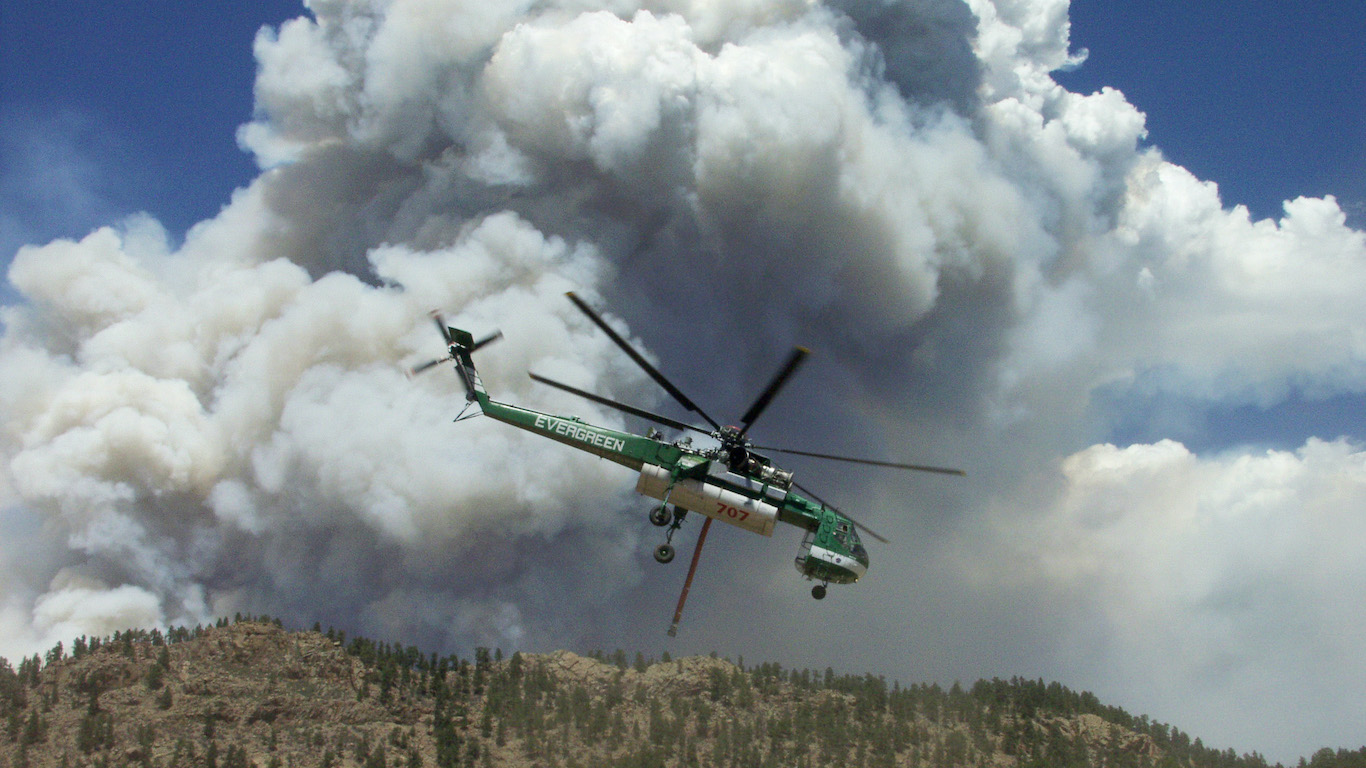
Extreme weather events are becoming more frequent in the United States, and they appear to be intensifying because of climate change. Because of the sheer size of America, different cities in the United States can be hit by virtually any intense weather occurrence, including drought, floods, deep freezes, blizzards, tropical cyclones, wildfires, and tornadoes.
To identify the worst weather event in each major U.S. city, 24/7 Tempo looked at extreme weather events ever recorded in the 50 most populous cities in the country. Data on these weather events were taken from sources that included news reports and federal agencies such as the National Oceanic and Atmospheric Association (NOAA).
Click here to read about every major U.S. city’s worst weather event
In the last decade, there have been 111 climate-related natural disasters that have caused at least $1 billion in damages nationwide. In the previous decade, there were only 59 such events. The frequency and intensity of these events have profound implications for the economic, demographic, and cultural future of American cities These are the worst natural disasters in the US in the last 10 years.
Different parts of the nation face different kinds of extreme weather. Cities in the Plains and Great Lake states have fallen victim to blizzards and tornadoes. The West Coast is at risk of wildfires. The Southwest has been devastated by prolonged drought. The South is frequently hit with tornadoes and hurricanes. Blizzards and hurricanes have also ravaged the East Coast. Midwestern areas near rivers are often inundated with massive floods. Here are the worst floods in American history.
To identify the worst weather event in each major US city, 24/7 Tempo looked at extreme weather events throughout our nation’s history in the 50 most populous cities in the country with the most fatalities, property damage, the magnitude of the event, or any combination of the three. Data on these weather events were taken from sources ranging from local news reports to federal sources such as the National Oceanic and Atmospheric Association (NOAA). We looked at the 50 largest cities in the country, according to the American Community Survey 2018 1-Year Estimates.





